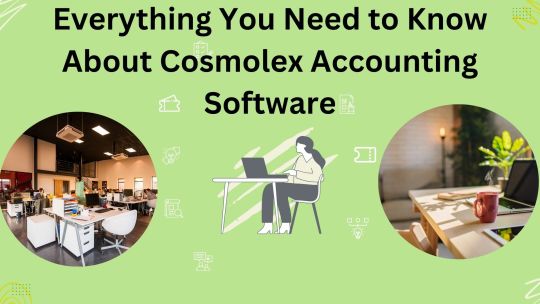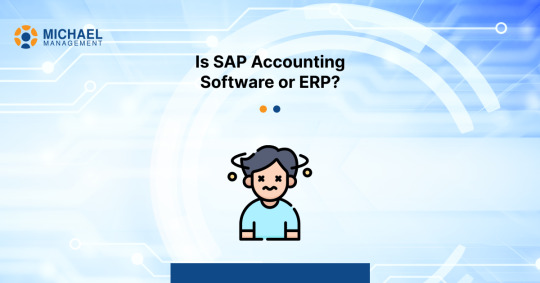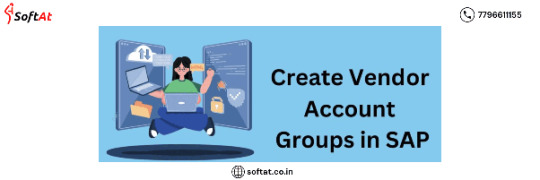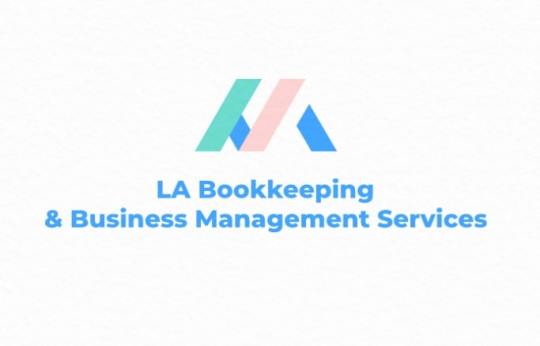#accounts payable integration
Explore tagged Tumblr posts
Text
PathQuest AP Seamlessly Integrates with Leading Accounting Systems

Experience seamless two-way integration with PathQuest AP and your accounting software. Automate invoice coding, sync payments, and optimize your workflow effortlessly. Whether it's QuickBooks, Xero, or Sage Intacct, streamline your vendor bill processing for higher efficiency and focus on value-added tasks. For more information visit us at https://pathquest.com/ap-integration/
#accounts payable integration#ap automation for quickbooks#sage intacct ap integration#xero ap automation
0 notes
Note
Juno, out of curiosity, what does an accountant DO? What does it mean to be one? Because I know there's math involved. I've heard it's very boring. But I don't know anything else and I'm curious because you're very good at putting things to words.
Okay first of all, I cannot express just how excited I got when I first saw this message. There is nothing I love more than talking about things I know about, and usually when my career is mentioned I don't get questions so much as immediate "Oh, bless you" and "I could never"s. Which- totally fair! For some people, accounting would be boring as all hell! But for a multitude of reasons, I adore it.
There are multiple types of accounting. The type most people tend to be more familiar with is that done by CPAs- CPAs, or Certified Public Accountants, are those that have done the lengthy and expensive process to be certified to handle other peoples' tax documents and submit taxes in their name, amongst other things. Yawn, taxes, right? Well, the thing with that is that there's a lot of little loopholes that tax accountants have to remain familiar with, because saving their clients a little more here or getting a little more back there can really add up, and can do a lot for people who, say, have enough money to afford to hire someone to do their taxes but not necessarily enough to be going hog wild with. Public accountants can work for large firms or by themselves, and also do things like preparing financial statements for businesses, auditing businesses to ensure all of their financial transactions are true and accurately reported to shareholders and clients, and consulting on how finances can be managed to maximize revenue (money in - money out = revenue, in very simple terms).
The type of accounting I do is private accounting! That basically just means that I work for a company in their in-house accounting/finance department. Private accounting tends to get split up into several different areas. My company has Payroll, Accounts Receivable, and Accounts Payable.
Payroll handles everyone's paychecks, PTO, ensuring the correct amount of taxes are withheld from individuals per their desires, and so on. Accounts Receivable handles money flow into the company- so when our company sells the product/service, our Accounts Receivable people are the ones who review the work, create the invoices, send the invoices to the clients, remind clients about overdue invoices, receive incoming payments via ACH (Automatic Clearing House- direct bank-to-bank deposits), Wire (Usually used for international transactions), or Check, and prepare statements that show how much revenue we are expected to gain in a period of time, or have gained in a period of time. This requires a lot of interfacing with clients and project managers.
My department is Accounts Payable. Accounts Payable does basically the other side of the coin from what Accounts Receivable does. We work mostly with vendors and our purchasing/receiving departments. We receive invoices from people and companies that have sold us products/services we need in order to make our own products/perform our services, enter them into our ERP (Enterprise Resource Planning, a system that integrates the departments in a company together- there are many different ERPs, and most people simply refer to their ERP as "the system" when talking internally to other employees of the same company that they work at, because saying the name of the system is redundant) using a set of codes that automatically places the costs into appropriate groups to be referenced for later financial reports, and run the payment processing to ensure that the vendors are being paid.
To break that down because I know that was a lot of words, here's some things I do in my day-to-day at work:
- Reconciliations, making sure two different statements match up: the most common one is Credit Card reconciliations, ensuring that there are appropriately coded entries in the system that match the payments made on our credit line in our bank.
- Invoice entry: this is basic data entry, for the most part. This can have two different forms, though
- Purchase Order Invoice entry: Invoices that are matched both to the service/product provided from the vendor and the purchase order created by our Purchasing/Receiving department. We ensure that the item, the quantity, and the price all match between our records, the purchase order, and the invoice, before we enter this.
- Hard Coded Invoice entry: Invoices that we enter manually due to there being no Purchase Order for them. This is often recurring services, like cleaning or repairs, that may happen too often or have prices vary too much for Purchase Orders to be practical.
- Cleaning up old purchase orders: sometimes Purchase Orders are put in the system and then never fulfilled. Because this shows on financial statements as being a long-standing open commitment, it looks bad, so we have to periodically research these and find out if the vendor simply didn't send us the invoice, if the order was cancelled, or if something else is going on.
- Forensics! This is my personal favorite part of the job, where someone has massively borked something that is affecting my work, and so I go dig into it, sometimes going back as four or five years in records to find the origin point of the first mistake, and untangling the threads of what happened following that mistake to get us to where we are today. There's an entire field called Forensic Accounting that is basically just doing This but for other companies (it's a subset of auditing, and often is done via the IRS) and that's my dream position to be totally honest. I loooove the dopamine hit i get with solving the mystery and getting praised for doing so faster than anyone else has even begun to realize the problem to start with.
- Balancing Credits/Debits: This is more of a Main Accountant role thing, but the long and short of it is that every business has Assets, Liabilities, and Equity. Liabilities and Equity are what we put into the company/what we owe, and assets are what we have received/what we are owed. Anything that increases Assets or lowers Liabilities or Equity is a Debit. Anything that decreases Assets or raises Liabilities or Equity is a Credit. Every monetary change we process has to include an equal Debit and Credit. This is its own whole lecture, so if you wanna know more about double-entry accounting, let me know, but it's yawnsville for most people.
- Actually cutting checks or initiating bank payments to vendors for amounts we owe them.
- Vendor communication: I'm on the phones and email a lot with vendors who are wondering where their payment is, or why something was short-paid, or if I can change some of their info in our system, and so on and so on. Every job is customer service, unfortunately. I don't love it, but I do a lot less of it in private accounting than I would have to do in public accounting.
- Spreadsheets: I make so many spreadsheets I am a goddamn Excel wizard. I love spreadsheets. This isn't necessarily accounting-specific though, most people in Finance jobs love spreadsheets, or at least use them to make their lives easier. I make them just for fun, because I'm a giant fucking nerd who finds that kind of thing enjoyable lol. So if you ever need a spreadsheet made for anything, hit me up.
As for math, that's a pretty common misconception. While there is math, it is very rarely more complicated than "I paid $3 of the $8 I owe, now I owe $5" for me. There are some formulas you learn in school (Business Administration with a focus in Accounting is what I studied), but they're also pretty standard and rarely include more than like... basic algebra. Which. Thanks @ god because I flunked so hard out of pre-calc in college. I could not have done accounting if it really were all that math heavy.
Aaaand yeah! That's all I've got off the top of my head- if you have any more questions about it, do let me know, I'm happy to ramble on for hours, but I'm cutting it here so I don't start meandering on without direction lol.
41 notes
·
View notes
Text
This is my reread of the Lockwood and Co. Books, organized by @blue-boxes-magic-and-tea, I'll make a general summary of several chapters and then post bits and pieces that jumped out at me.
Part II, Chapters 7-8:
35 Portland Row is such a perfect home base. An urban Hobbit Hole. Magician’s nephew townhouse. Familiar and homey, yet exiting and unusual. Just the right amount of familiar and unfamiliar things that would appeal to a kid. The tantalizing fantasy of independence mixed with the fear of the outside world that the young target audience first starts to comprehend at that age. The dream of living with your crush and all your friends, eating donuts for breakfast, staying up to all hours of the night, being dashing, running things, having swords, being better at something than the adults who are an arbitrary force you put on a façade and appease and try to get rid of as soon as possible. Your challenge being comprehending mortality, coming to terms that death is a part of life and can happen to anyone around you, even your most loved ones. And your enemy being corrupt adults who run corporations that already traded your future, all your hopes and dreams, all your potential for just a bit more money, prestige, life they desire. It says something that a book for a modern teenager is one about kids just trying to survive in a world adults ruined and how difficult it is to keep a place of your own and your integrity safe and in one piece.
Miscellaneous:

It's sweet that Lockwood sees Portland Row as being not just "his" but belonging to anyone who is part of the agency. This is his home, legally he is the sole owner of it, but he views the house as Lucy's and George's in equal measure because they are part of Lockwood and Co. He opens his home to people not in the manner of a landlord (we don't really ever find out if he charges Geroge or Lucy any rent, I suspect he doesn't although informally they all probably pitch in on maintenance). What I love about Lockwood is he's such a paradox, he's extremely inviting and yet intensely closed off. He both opens his home to friends and craves a family and is also deeply emotionally stunted and detached.

George has lived with Lockwood for only maybe a year or so and the agency has only been registered three months and yet he gives off such intense "Elizabeth from Accounts Payable whose been with the company for twenty years and has weathered every kind of bullshit and is counting down to retirement" vibes like, Sir, how do you sound so 50 at 15?

Lockwood is so funny because one moment he's actually being a good boss and agency head – conducting good interviews, watching for emotional responses, making background checks on potential hires, giving a tour to new employee where he firmly but politely draws boundaries - and then the next moment he's absolutely peacocking to a cute girl like "look, look, I'm also powerful and a big deal!"
I also think it's funny that Lockwood strikes out with Lucy a lot more from the beginning then we realize. Lucy is traumatized, emotionally immature and has not been socialized properly. Her self-confidence has been worn away by her "prettiness is not your job" mother and having to be the breadwinner for her family so early in life. There are these moments early on where someone more adept at flirting would have picked up on Lockwood being a showoff and maybe played with it, but bless her she's 13 going on 14 here, literally no one can flirt at that age so she's just incapable of seeing what is going on or give it any time of day. It's no wonder that it takes them literal years to get anywhere.
Also, who let Lockwood keep that watch? no one right? He stole it. He told the cops there's a shitload of death glows in a garden and they probably brought him along to raid the home of a serial killer to help look evidence or whatever and there was a watch lying around and Lockwood was like “ooooooh for my murder scrapbook!” and swiped it.


The mention of an uncle early on is such a clever thing because it’s relevant to the plot during the interview to show how sensitive Lucy really is, but it’s also a red herring. When George mentions Lockwood losing his parents young and him being “in care” of some relative, the reader immediately thinks "ah yes, that must have been that nice uncle!" It lets us assume that whatever mystery there is about the room it must be about his parents. It's why the reveal at the end of Whispering Skull is such a surprise and shows just how little we know about him.

Yea she's gone.
It took less than a week for her to go from describing Lockwood as looking like "a priest on a toilet" to this teenage horniness. My disaster crush in Gr.7 had about the same trajectory. Also reminds me of Mei's completely realistically portrayed crush on Some Convenience Store Guy in "Turning Red". Flips on like a switch and before you know it, you're doodling the most mortifying thing ever conceived my man. 13 is such a cursed age, my god.

I’ve mentioned this before in a post, but Lucy lashes out at people for things she hates about herself. Her internal gripes about Geroge are not that he’s rude (even though he definitely is to her) she’s not mean about him being objectively less Talented then her, she’s never makes fun of him for being smarter or better educated than she is. Lucy can handle outright hostility pretty well and she’s not self-conscious about her talent or lack of education. But she is, I think, deeply insecure about her appearance. And like so many girls her age it’s the chink in her armor she knows to hide and wallpaper over with dismissal and disdain. She pretends she doesn’t care but she does, and the more her feelings for Lockwood grow the more it shows in how she talks about herself and how she talks about others.

Sometimes you’re reading a book and oooh there’s a romance subplot and A falls for B (often instead of C or D) and you think … but why? why is A in love with B actually? What is it about them that makes the attraction click? But with Lucy it’s so obvious why she is almost immediately taken with Lockwood, but also why she doesn’t realize it. From Lucy’s POV, for all his flaws Lockwood is the opposite of what Jacobs was. He enters with the teams and he’s the last to leave (he even jumps out the burning building last). She doesn’t feel alone and unsupported. He takes accountability for any error on the case, easily and without any shifting of blame. Sure he’s vainglorious and a bit irresponsible and impulsive and all that. He’s 14-15 at most - that’s normal enough and she’s a kid like him, she gets it. But Lockwood is also a kid burdened with a lot of responsibly and I think Lucy is in a unique position to appreciate this and admire him for taking it on as he does. And that admiration neatly tricks her into thinking that’s all there is to her feelings for a long, long time because she can’t tell her feels apart worth a damn.
I’m going to start a Lucy describes Lockwood’s smile count: 6
31 notes
·
View notes
Text
Everything You Need to Know About Cosmolex Accounting Software

In today’s fast-paced business world, having the right accounting software is essential for smooth financial management. CosmoLex has emerged as a leading choice for businesses, particularly in the legal and professional services industries, offering comprehensive accounting solutions tailored to specific needs.
This guide will explore why CosmoLex stands out as the best accounting software, detailing its features, benefits, and unique selling points. We will also address common questions to help you understand if CosmoLex is the right tool for your business.
What is CosmoLex?
CosmoLex is a cloud-based accounting software solution designed with professionals in mind, especially those in the legal industry, such as law firms and solo practitioners. With an all-in-one platform, CosmoLex combines essential accounting functions with specialized features that cater to the unique needs of legal professionals. Unlike traditional accounting software, CosmoLex streamlines financial management while also addressing compliance and trust accounting requirements.
With features that extend beyond basic bookkeeping, CosmoLex helps firms manage time tracking, billing, client management, and compliance, all in one integrated system. The software's easy-to-use interface and powerful functionality have made it a go-to solution for professionals looking for efficiency and accuracy in their financial operations.
Key Features of CosmoLex
1. Trust Accounting Compliance
One of CosmoLex’s standout features is its trust accounting capabilities, specifically designed to meet the strict regulations of the legal industry. Trust accounts require meticulous record-keeping to ensure that client funds are handled appropriately. CosmoLex automates the process of tracking client trust balances, generating trust account reconciliations, and ensuring compliance with local bar association rules.
2. Integrated Time Tracking and Billing
CosmoLex combines time tracking and billing into one seamless process, making it easy for law firms to log billable hours and create invoices directly from the platform. This feature helps streamline the billing process, improves accuracy, and ensures that no billable time goes unaccounted for. Whether you need to track time spent on client meetings or specific case tasks, CosmoLex offers a user-friendly interface that simplifies time tracking and invoicing.
3. Comprehensive Financial Management
Beyond its specialized tools, CosmoLex provides full-service accounting capabilities, including accounts payable/receivable management, general ledger, and financial reporting. It allows businesses to manage their financial data accurately, create financial statements, and generate customizable reports that provide insights into their financial health.
4. Automated Bank Reconciliation
CosmoLex automates the process of bank reconciliation, which is crucial for maintaining accurate financial records. By connecting your bank accounting software, transactions are automatically imported, matched, and reconciled. This reduces the manual effort needed for reconciliation and minimizes the risk of human error.
5. Client and Matter Management
CosmoLex offers integrated client and matter management tools that allow you to organize client files, manage documents, and maintain case notes within the same system. This helps legal professionals keep track of all case-related information in one place, ensuring that critical documents are easily accessible when needed.
6. Billing Customization and Payment Processing
The software supports customizable invoice templates and allows you to set payment terms and accept online payments through integrated payment gateways. This feature not only streamlines the billing process but also provides clients with convenient payment options, thereby improving cash flow for the business.
7. Compliance and Security
CosmoLex prioritizes data security with encryption, secure cloud storage, and multi-factor authentication. Compliance is also a key focus, especially for law firms that must adhere to various legal and financial regulations. The platform ensures that all data is protected and compliant with the necessary guidelines for trust accounting.
Benefits of Using CosmoLex
1. All-in-One Solution
One of the major advantages of CosmoLex is that it combines various essential tools into a single platform. This eliminates the need for separate software solutions for accounting, time tracking, billing, and client management, streamlining workflow and reducing administrative overhead.
2. Enhanced Efficiency
CosmoLex’s user-friendly design and automated features help businesses save time on routine tasks. The time tracking, billing, and reconciliation automation allow professionals to focus on their core activities rather than spend valuable time on manual bookkeeping.
3. Accurate and Transparent Reporting
With real-time financial reporting capabilities, CosmoLex helps businesses keep a clear picture of their financial status. Customized financial reports can be generated for better insights, aiding in more informed decision-making and strategic planning.
4. Improved Cash Flow
By enabling easy online payment processing and accurate invoicing, CosmoLex helps businesses improve their cash flow. Clients can pay invoices directly through integrated payment gateways, which helps speed up the collection process.
5. Legal-Specific Features
CosmoLex is specifically designed for legal professionals, so it includes features that cater to the needs of law firms that other generic accounting software might not offer. This includes trust accounting compliance, case management, and billing features tailored for legal services.
How Does CosmoLex Compare to Other Accounting Software?
1. CosmoLex vs. QuickBooks
QuickBooks is one of the most widely used accounting platforms for small to medium-sized businesses. While it offers strong accounting capabilities, it does not provide specialized features tailored for legal professionals, such as trust accounting compliance and integrated client matter management. CosmoLex excels in this area by combining industry-specific tools with general accounting features.
2. CosmoLex vs. Clio
Clio is a popular practice management software for law firms that includes billing, case management, and document storage. However, while Clio does provide some financial features, it lacks full-service accounting capabilities such as automated bank reconciliation and comprehensive financial reporting that CosmoLex offers. CosmoLex integrates these features into one platform, making it an all-in-one solution.
3. CosmoLex vs. Xero
Xero is a well-known accounting software designed for a broad range of businesses. While it offers great financial management tools, it lacks the legal-specific features that CosmoLex has, such as trust accounting compliance and client matter management. For law firms needing specialized accounting and practice management, CosmoLex is the more comprehensive option.
Pros and Cons of Using CosmoLex
Pros:
All-in-One Platform: Combines accounting, time tracking, and client management.
Trust Accounting Compliance: Ideal for law firms that need to manage client trust accounts.
User-Friendly Interface: Easy to navigate, even for those without an accounting background.
Seamless Integration: Works well with payment gateways and other third-party tools.
Automated Features: Time-saving automation for bank reconciliation, billing, and reporting.
Cons:
Cost: CosmoLex can be more expensive compared to simpler, non-specialized accounting software.
Learning Curve: While the interface is user-friendly, new users may still need time to familiarize themselves with all the features.
Not Ideal for Non-Legal Firms: The software is best suited for law firms and may not provide enough value for businesses in other industries.
Final Thoughts
CosmoLex has established itself as one of the best accounting software solutions for legal professionals due to its comprehensive, all-in-one approach. From trust accounting compliance to integrated time tracking and billing, CosmoLex provides the tools needed to manage the financial and operational aspects of a law firm effectively. While it may come at a higher cost compared to simpler accounting software, its specialized features and time-saving automation make it a worthwhile investment for law firms and professional service providers. By choosing CosmoLex, businesses can enhance efficiency, ensure compliance, and focus on delivering excellent services to their clients.
FAQs
What Industries Benefit the most from CosmoLex?
CosmoLex is designed primarily for legal professionals and firms. It is best suited for law firms, solo practitioners, and accounting firms that handle legal trust accounting and billing.
How does CosmoLex Handle Data Security?
CosmoLex employs strong data security measures such as encryption, cloud storage, and multi-factor authentication to protect user data and ensure compliance with industry regulations.
Can I try CosmoLex before Purchasing?
Yes, CosmoLex offers a free trial for potential customers to test out the platform and determine if it fits their business needs.
Does CosmoLex Integrate with other Software?
CosmoLex integrates with popular tools and platforms like Xero, QuickBooks, and payment gateways, ensuring a seamless workflow for users who may need to use additional software for their operations.
Is CosmoLex Suitable for Solo Practitioners?
Yes, #CosmoLex is an excellent choice for solo practitioners who need a comprehensive accounting and practice management solution. Its user-friendly design and specialized features make it ideal for professionals who manage their own practices.
2 notes
·
View notes
Text
With Innrly | Streamline Your Hospitality Operations

Manage all your hotels from anywhere | Transformation without transition
Managing a hotel or a multi-brand portfolio can be overwhelming, especially when juggling multiple systems, reports, and data sources. INNRLY, a cutting-edge hotel management software, revolutionizes the way hospitality businesses operate by delivering intelligent insights and simplifying workflows—all without the need for system changes or upgrades. Designed for seamless integration and powerful automation, INNRLY empowers hotel owners and managers to make data-driven decisions and enhance operational efficiency.
Revolutionizing Hotel Management
In the fast-paced world of hospitality, efficiency is the cornerstone of success. INNRLY’s cloud-based platform offers a brand-neutral, user-friendly interface that consolidates critical business data across all your properties. Whether you manage a single boutique hotel or a portfolio of properties spanning different regions, INNRLY provides an all-in-one solution for optimizing performance and boosting productivity.
One Dashboard for All Your Properties:
Say goodbye to fragmented data and manual processes. INNRLY enables you to monitor your entire portfolio from a single dashboard, providing instant access to key metrics like revenue, occupancy, labor costs, and guest satisfaction. With this unified view, hotel managers can make informed decisions in real time.
Customizable and Scalable Solutions:
No two hospitality businesses are alike, and INNRLY understands that. Its customizable features adapt to your unique needs, whether you're running a small chain or managing an extensive enterprise. INNRLY grows with your business, ensuring that your operations remain efficient and effective.
Seamless Integration for Effortless Operations:
One of INNRLY’s standout features is its ability to integrate seamlessly with your existing systems. Whether it's your property management system (PMS), accounting software, payroll/labor management tools, or even guest feedback platforms, INNRLY pulls data together effortlessly, eliminating the need for system overhauls.
Automated Night Audits:
Tired of labor-intensive night audits? INNRLY’s Night Audit+ automates this crucial process, providing detailed reports that are automatically synced with your accounting software. It identifies issues such as declined credit cards or high balances, ensuring no problem goes unnoticed.
A/R and A/P Optimization:
Streamline your accounts receivable (A/R) and accounts payable (A/P) processes to improve cash flow and avoid costly mistakes. INNRLY’s automation reduces manual entry, speeding up credit cycles and ensuring accurate payments.
Labor and Cost Management:
With INNRLY, you can pinpoint inefficiencies, monitor labor hours, and reduce costs. Detailed insights into overtime risks, housekeeping minutes per room (MPR), and other labor metrics help you manage staff productivity effectively.
Empowering Data-Driven Decisions:
INNRLY simplifies decision-making by surfacing actionable insights through its robust reporting and analytics tools.
Comprehensive Reporting:
Access reports on your schedule, from detailed night audit summaries to trial balances and franchise billing reconciliations. Consolidated data across multiple properties allows for easy performance comparisons and trend analysis.
Benchmarking for Success:
Compare your properties' performance against industry standards or other hotels in your portfolio. Metrics such as ADR (Average Daily Rate), RevPAR (Revenue Per Available Room), and occupancy rates are presented in an easy-to-understand format, empowering you to identify strengths and areas for improvement.
Guest Satisfaction Insights:
INNRLY compiles guest feedback and satisfaction scores, enabling you to take prompt action to enhance the guest experience. Happy guests lead to better reviews and increased bookings, driving long-term success.

Key Benefits of INNRLY
Single Login, Full Control: Manage all properties with one login, saving time and reducing complexity.
Error-Free Automation: Eliminate manual data entry, reducing errors and increasing productivity.
Cost Savings: Pinpoint problem areas to reduce labor costs and optimize spending.
Enhanced Accountability: Hold each property accountable for issues flagged by INNRLY’s tools, supported by an optional Cash Flow Protection Team at the enterprise level.
Data Security: Protect your credentials and data while maintaining your existing systems.
Transforming Hospitality Without Transition
INNRLY’s philosophy is simple: transformation without transition. You don’t need to replace or upgrade your existing systems to benefit from INNRLY. The software integrates effortlessly into your current setup, allowing you to focus on what matters most—delivering exceptional guest experiences and achieving your business goals.
Who Can Benefit from INNRLY?
Hotel Owners:
For owners managing multiple properties, INNRLY offers a centralized platform to monitor performance, identify inefficiencies, and maximize profitability.
General Managers:
Simplify day-to-day operations with automated processes and real-time insights, freeing up time to focus on strategic initiatives.
Accounting Teams:
INNRLY ensures accurate financial reporting by syncing data across systems, reducing errors, and streamlining reconciliation processes.
Multi-Brand Portfolios:
For operators managing properties across different brands, INNRLY’s brand-neutral platform consolidates data, making it easy to compare and optimize performance.
Contact INNRLY Today

Ready to revolutionize your hotel management? Join the growing number of hospitality businesses transforming their operations with INNRLY.
Website: www.innrly.com
Email: [email protected]
Phone: 833-311-0777
#Innrly#Innrly Hotel Management Software#Bank Integrations in Hospitality Software#Tracking Hotel Compliance#hotel performance software#hotel portfolio software#Hotel Performance Management Software#hotel reconciliation software#Hotel Data Entry Software#accounting software hotels#hotel banking software#hospitality automated accounting software#hotel automation software hotel bookkeeping software#back office hotel accounting software#hospitality back office software#accounting hospitality software#Hotel Management Accounting Software#Hotel Accounting Software#Hospitality Accounting Software#Accounting Software for Hotels#Hotel Budgeting Software#Automate Night Audit Software#Automate Night Audit Process#Best Hotel Accounting Software#Best Accounting Software For Hotels#Financial & Hotel Accounting Software#Hospitality Accounting Solutions
2 notes
·
View notes
Text
Maximize Efficiency with Expert Cash Management Solutions
In today’s fast-paced business environment, effective cash management is crucial for maintaining financial stability and supporting growth. Expert cash management solutions can help businesses streamline their operations, optimize liquidity, and enhance overall financial efficiency. This article explores how leveraging advanced cash management solutions can maximize efficiency and drive business success.
What is Cash Management?
Cash management involves the collection, handling, and use of cash in a business. The goal is to ensure that a company has enough cash on hand to meet its short-term obligations while optimizing the use of its funds. Effective cash management helps businesses avoid liquidity problems, reduce financing costs, and invest surplus cash wisely.
Key Benefits of Expert Cash Management Solutions
Improved Cash Flow Visibility
Expert cash management solutions provide real-time insights into cash flow. By integrating these solutions with your financial systems, you can gain a comprehensive view of your cash position, including incoming and outgoing funds. This visibility allows for better forecasting and planning, helping you anticipate cash needs and avoid potential shortfalls.
Enhanced Liquidity Management
Managing liquidity effectively is essential for ensuring that your business can meet its obligations without holding excessive cash. Advanced cash management tools help optimize liquidity by analyzing cash flow patterns and recommending strategies to manage working capital more efficiently. This includes managing accounts receivable and payable, optimizing cash reserves, and reducing idle cash.
Streamlined Cash Collection and Disbursement
Automated cash management solutions streamline the collection and disbursement processes. For example, electronic invoicing and payment systems can accelerate the receipt of payments, reducing the time it takes to convert receivables into cash. Similarly, automated disbursement systems help manage outgoing payments, ensuring that bills and payroll are processed efficiently and on time.
Enhanced Fraud Prevention and Security
Security is a critical aspect of cash management. Expert solutions offer robust security features to protect against fraud and unauthorized transactions. This includes encryption, multi-factor authentication, and transaction monitoring. By implementing these security measures, businesses can safeguard their cash and reduce the risk of financial losses due to fraud.
Optimized Investment Opportunities
Efficient cash management doesn’t just involve managing daily transactions; it also includes investing surplus cash to generate returns. Expert cash management solutions help identify and evaluate investment opportunities that align with your company’s risk tolerance and financial goals. Whether it’s investing in short-term instruments or managing liquidity portfolios, these solutions provide insights to make informed investment decisions.
Regulatory Compliance
Adhering to regulatory requirements is essential for avoiding penalties and maintaining financial integrity. Advanced cash management systems help ensure compliance with relevant regulations by automating reporting and record-keeping. This includes managing tax-related cash flows, regulatory filings, and maintaining accurate financial records.
Implementing Expert Cash Management Solutions
To maximize efficiency with expert cash management solutions, consider the following steps:
Assess Your Needs
Begin by evaluating your business’s cash management needs. Identify areas where improvements are needed, such as cash flow forecasting, liquidity management, or fraud prevention. This assessment will help you choose the right solutions that align with your business objectives.
Choose the Right Tools
Select cash management solutions that offer the features and functionality you need. Look for tools that integrate with your existing financial systems, provide real-time insights, and offer robust security measures. Consider solutions that are scalable and can grow with your business.
Implement and Integrate
Once you’ve selected the appropriate solutions, implement them within your organization. This may involve integrating the solutions with your current financial systems, training staff on how to use the tools, and establishing processes for managing cash flow effectively.
Monitor and Optimize
Regularly monitor the performance of your cash management solutions to ensure they are delivering the expected benefits. Use the insights provided by these tools to make data-driven decisions, optimize cash flow, and adjust your strategies as needed.
Review and Adjust
Periodically review your cash management practices and solutions to ensure they remain effective. As your business evolves, your cash management needs may change, requiring adjustments to your strategies and tools.
Conclusion
Expert cash management solutions are essential for maximizing efficiency and achieving financial stability in today’s competitive business landscape. By leveraging advanced tools and strategies, businesses can gain better visibility into their cash flow, optimize liquidity, streamline processes, and enhance security. Implementing these solutions helps ensure that your business can meet its financial obligations, invest wisely, and maintain a strong financial position. Embracing expert cash management practices not only improves day-to-day operations but also supports long-term growth and success.
For more details, visit us:
expense tracker software
Expense Management Software
invoice management system
best expense reimbursement software
3 notes
·
View notes
Text
Melio is a financial technology platform designed to streamline accounts payable and receivable processes for small and medium-sized businesses. It aims to simplify bill payments, improve cash flow management, and enhance overall financial operations. Here is a detailed review of its features and functionalities:
Key Features
Bill Payments:
Multiple Payment Methods: Melio allows businesses to pay vendors using ACH bank transfers, credit cards, or checks. This flexibility helps businesses manage cash flow and earn credit card rewards, even if the vendor only accepts checks. Schedule Payments: Users can schedule payments in advance, ensuring timely bill payments and avoiding late fees. Batch Payments: The platform supports batch payments, allowing users to pay multiple bills at once, saving time and reducing administrative burden.
Accounts Receivable:
Payment Requests: Businesses can send payment requests to customers via email, including a link for customers to pay directly through the platform.
Customer Management: Track customer payments, manage outstanding invoices, and automate reminders to improve collection rates.
Integration and Syncing:
Accounting Software Integration: Melio integrates with popular accounting software like QuickBooks, Xero, and FreshBooks, ensuring seamless data synchronization and reducing manual data entry.
Bank Integration: Direct integration with banks facilitates easy payment processing and reconciliation. User-Friendly Interface:
Dashboard: A clean and intuitive dashboard provides an overview of pending and completed payments, cash flow status, and upcoming bills.
Mobile Access: The platform is accessible via mobile devices, allowing users to manage payments and view financial data on the go.
Security and Compliance:
Secure Transactions: Melio employs robust security measures, including encryption and secure data storage, to protect user information and financial transactions.
Compliance: The platform adheres to financial regulations and industry standards, ensuring compliance with relevant laws.
Cash Flow Management:
Flexible Payment Options: By allowing credit card payments for bills, Melio helps businesses manage cash flow more effectively, providing the flexibility to defer payments while still meeting obligations.
Payment Scheduling: Advanced scheduling options enable better planning and control over outgoing cash flow.
Collaboration Tools:
Team Access: Multiple users can be granted access to the platform, allowing for collaborative financial management. Permission settings ensure that sensitive information is accessible only to authorized personnel.
Audit Trail: Detailed records of all transactions and activities help maintain transparency and accountability.
Pros Flexibility in Payments: The ability to pay bills via credit card, even when vendors don’t accept them, provides a unique advantage in managing cash flow and earning rewards. Ease of Use: The platform’s user-friendly interface and straightforward setup make it accessible for businesses of all sizes.
Integration with Accounting Software: Seamless integration with major accounting tools ensures accurate financial tracking and reduces manual workload.
Security: Strong security measures and compliance with industry standards provide peace of mind for users.
Batch Payments: Support for batch payments simplifies the process of paying multiple bills, saving time and reducing errors.
Cons Cost: While Melio offers a free version, certain advanced features and payment methods (like credit card payments) incur fees, which might be a consideration for cost-sensitive businesses. Limited Global Reach: Melio primarily serves businesses in the United States, which may limit its usefulness for companies with significant international operations or those based outside the U.S. Learning Curve for Advanced Features: Some users might find the advanced features complex initially, requiring time to fully utilize all functionalities.
Melio is a powerful and flexible tool for small and medium-sized businesses looking to streamline their accounts payable and receivable processes. Its ability to manage payments through various methods, integration with popular accounting software, and user-friendly design make it an attractive option for businesses aiming to enhance their financial operations. While there are costs associated with some features and a learning curve for advanced functionalities, the overall benefits, including improved cash flow management and operational efficiency, make Melio a valuable tool for modern businesses.
4 notes
·
View notes
Text
Is SAP Accounting Software or ERP?

SAP is not just accounting software but a comprehensive Enterprise Resource Planning (ERP) solution. While SAP does include accounting functionalities, it goes beyond that by integrating various business processes such as sales, production, inventory, and human resources. SAP's ERP software allows organizations to improve efficiency and gain valuable insights into their business performance.
For more details, visit: https://www.michaelmanagement.com/browse/sap-erp/financials/accounts-receivable-payable
2 notes
·
View notes
Text
Enhancing Manufacturing Excellence: 6 Key Benefits of SAP Business One
Staying ahead of the competition requires more than just producing high-quality products. It demands efficient operations, streamlined supply chains, and real-time decision-making capabilities. This is where SAP Business One, a robust Enterprise Resource Planning (ERP) solution, steps in to transform the manufacturing sector. In this blog, we will explore six significant benefits that SAP Business One brings to manufacturers of all sizes, from small businesses to mid-sized enterprises.

Better Visibility
One of the primary challenges in manufacturing is maintaining visibility into the complex web of supply chains, operations, and inventory resources. SAP manufacturing software addresses this challenge by providing enhanced visibility through seamless integration with shipping logistics and supply chains. This integration empowers manufacturers with real-time data, enabling them to make well-informed decisions promptly.
Furthermore, the platform offers customized and interactive dashboards that offer a 360-degree view of the entire manufacturing process. This flexibility in analysis and insights allows manufacturers to adapt swiftly to changing customer demands and meet stringent deadlines.
Improved Productivity
SAP manufacturing software incorporates Material Requirements Planning (MRP) functionality, which replaces outdated production scheduling methods with a structured, multilevel production process. MRP also facilitates resource planning for machine maintenance, leading to overall productivity improvements.
Additionally, the MRP wizard streamlines material procurement and production planning, significantly reducing pre-production lead times. This efficiency boost directly contributes to enhanced productivity and better resource utilization.
Cost Control
Cost control is a paramount concern for manufacturing companies. SAP manufacturing software offers a solution by optimizing daily operations, reducing waste, and simplifying processes. Informed decision-making, enabled by SAP manufacturing software, aids in identifying cost-saving opportunities and increasing overall business profitability.
Working Capital Management
Managing working capital is essential for the day-to-day operations of manufacturing companies. SAP manufacturing software offers a comprehensive suite of modules and capabilities that help in managing working capital effectively. This includes overseeing accounts receivables, accounts payables, cash flow, liquidity, and inventory planning.
Customized purchasing reports provide real-time insights into working capital challenges, replacing the traditional year-end or month-end reports. This level of control from SAP services allows manufacturers to make proactive decisions, ensuring the stability of their operations.
Inventory Management
Effective inventory management is critical for manufacturing success. SAP Business One equips manufacturers with advanced warehouse tracking features and real-time stock reports. These features help document stock levels and monitor stock transfers between warehouses, ensuring a lean inventory management approach.
The ERP solution strikes an ideal balance between inventory stock and production capacities, facilitating on-time product deliveries, efficient inventory cost management, and meeting customer demands effectively.
Regulatory Compliance
Manufacturers must adhere to industry regulations at every stage of the manufacturing process, from procurement to final product delivery. SAP Business One plays a crucial role in improving regulatory compliance by integrating these standards into its operations seamlessly.
Furthermore, the platform empowers manufacturers to embed quality control into their manufacturing processes, providing insights into vendor performance and enhancing customer satisfaction.
Conclusion
SAP system emerges as a powerful ally, offering a wide array of benefits to manufacturers. From improved visibility and productivity to cost control, working capital management, inventory optimization, and regulatory compliance, this ERP solution empowers manufacturing companies to thrive in a competitive environment. By embracing SAP Business One, manufacturers can embark on a journey toward excellence, ensuring they meet customer demands efficiently and maintain a strong position in the market.
2 notes
·
View notes
Text
What is Quick Payable?
Quick Payable is a user-friendly application available on Salesforce's app exchange platform. It is designed to simplify and streamline the accounts payable process for businesses. Here are the key features and benefits of Quick Payable:
1. Efficient Bill Management:
- Quick Payable allows businesses to easily manage bills from multiple vendors.
- The intuitive interface makes it easy to organize and track invoices.
- Businesses can ensure timely payments and avoid penalties or late fees.
2. Automated Invoice Data Capture:
- Quick Payable leverages advanced software to automate invoice data capture.
- This eliminates the need for manual data entry, saving time and reducing errors.
- The system intelligently extracts relevant information from invoices, such as invoice numbers, due dates, and amounts.
3. Streamlined Approval Process:
- With Quick Payable, businesses can customize their approval workflow.
- Approvers can be assigned based on vendor configurations, ensuring the right people review and authorize invoices.
- This streamlines the approval process, reducing bottlenecks and delays in the payment cycle.
4. Complete Expense Visibility:
- Quick Payable provides rich dashboards and reports, offering complete visibility of expenses.
- Businesses can track and analyze spending patterns, identify unnecessary costs, and optimize their spending.
- This level of insight empowers businesses to make informed financial decisions and improve overall financial management.
5. Effortless Data Export:
- Quick Payable allows for seamless data export to third-party ERP systems.
- Businesses can integrate their accounts payable information with existing financial software.
- This eliminates the need for manual transfers and ensures data consistency across different platforms.
6. Enhanced Efficiency and Error Reduction:
- By utilizing Quick Payable, businesses can improve the efficiency of their accounts payable processes.
- The app automates repetitive tasks, freeing up valuable time for the finance team.
- With fewer errors and delays, businesses can focus on strategic financial planning and ensure accurate financial records.
In summary, Quick Payable is a powerful tool that simplifies and streamlines the accounts payable process for businesses. With features like efficient bill management, automated invoice data capture, and streamlined approval processes, businesses can improve their financial management capabilities. The complete expense visibility and effortless data export features further enhance efficiency and reduce errors. Embrace Quick Payable to optimize your accounts payable processes and take control of your financial management.
2 notes
·
View notes
Text
It has occurred to me that aside from off-handed tags, vague references, and the occasional poll result that I don’t really share-share stuff about me online.
So allow me to break that streak for a moment to gush about my job:
I am, without being too specific, a Fancy Data Accountant. Let me explain.
I am not a CPA and I did not go to school for this, but I did take a variety of loosely related classes when I was in college. These classes + the slow grind of being An Employee During the Recession + a general thirst for knowledge + good organizational skills = a solid understanding of business fundamentals and a willingness to learn Accounts Receivable (A/R) and Accounts Payable (A/P) without fucking it up.
If any of you younguns don’t know - A/R and A/P are positions that are always in desperate need of smart people willing to learn. If you add to this even a basic knowledge of General Ledger accounting then congratulations you are 95% more competent than most of the people currently doing that job. The reason for this being that for small businesses, it’s usually a filler job. It’s usually passed on to like, whoever seems to have the most time leftover to do it.
Receptionists and owner’s wives. Lots of times it’s those people. And lots of times, they do not want to being doing that job either.
And since accountants tend to want to actually make good money and pay off their degrees, they also do not want those jobs! They’re mostly decently paying jobs, higher than entry level for sure, but they’re not CPA-paying jobs.
So there ends up being a knowledge gap between the people who are inputting all the financial data and the actual accountants who really really would prefer it if the data was better organized. Accountant and Tax Prep people, in fact, tend to need this so much that they sometimes hire people to work for them internally who can help business owners pretty things up so the data is fucking usable.
Enter me.
So I bounce around for a bit doing my thing - which is Easy, it’s so Easy that the only challenge I get is coming into a Messed Up set of books and fixing it. But then at a certain point…they are fixed. So what now?
Well my what now was ‘you know, this business (that I was working for at the time) has a stupid amount of manual input data. Not only that, but the data that’s being input is only a fraction of what we could be using to analyze and make decisions, and that’s because the industry relies on third party software for its A/R but a completely different software for its A/P. Since the two don’t talk to each other, we’re stuck relying on truncated reports out of our A/R that are somehow both watered down and crowded with unnecessary noise. No bueno!’
So bored little me signed up for a free library class on coding. I’m kind of shit at it, but that’s okay because that was the first time in my life I actually understood what syntax was in programming.
By the end of the class what I realized was that while I was too lazy to ever properly code something, it didn’t matter. What I really needed to know was:
1) what raw data I had available from System A
2) what the simplest, bare minimum amount of functions / formulas I needed to manipulate that data-
3) -so that I could then package it and download it into System B, preferably with minimal typing!
So that’s what I did. That was my new challenge. When I had a free moment at work - and boy did I find lots of those - I would play around with my little spreadsheets and these clunky programs. There needed to be checks and balances, you see. Whatever the output numbers said had to equal the new input numbers, or the accounting would be off. If Karen down the hall accidentally fat-thumbed in a new product or department, I needed it to 1) not break the formulas, and 2) be easily identified as an anomaly. Whatever happened between export/import needed to be cleaned, checked, and verified for the integrity of both systems.
So that’s what I built. Between doing my job and browsing Reddit at work. I built this whole system that would take this very boring part of my job and make it easy.
And yeah the place I worked for sucked, and I had plenty of issues happening personally, but this I was good at!
And the results kind of made me look like a god, which is always nice. And it got me a raise.
The pay bump was almost worth the mind-numbing boredom of the variety of other tasks I usually had to do to get to the fun bit. Almost.
Then last year in a moment of fed-up-ness I applied for a slew of jobs. Just slinging rezzies into the void on Indeed like a pizza maker flinging ‘za. Mostly for the same positions, just with better perks and pay. I wasn’t hoping for much. One of them called me back. Scheduled an interview. Did the interview. The next morning I had a job offer.
Y’all. I lucked in so fucking hard.
Not only were their books a mess, not only were they running a separate A/R and A/P system PLUS ANOTHER TWO INDUSTRY-SPECIFIC SOFTWARES, but they were actually excited to hear my ideas on how to fix it.
(And they were fucking soluble as all get out, which was a first for me.)
They were so excited, in fact, that it’s gone from being maybe 15% of my job to being about 80-90% of my job to just slowly fix and maintain everything they’ve got going on. Why the investment on their side? Because they’re looking to enter a potential partnership with X-number of other companies, all of whom have messy books that I could potentially end up fixing. Also the company has just started to open up a new location. Also the main owners are looking to start X-number of ancillary companies spinning out of the current one. All of these companies, of course, will have slews of data that need analyzed, with multiple Point-of-Sales systems that need to talk to each other, and good gosh golly, they know just the kind of person who likes to do that kind of shit now don’t they?
Then there’s little old me, sitting at my computer with my chunky spreadsheets and my limited amount of Visual Basic, somehow producing goddamn magic. Because programmers don’t understand generally accepted accounting practices, and accountants care even less about best data practices and management.
I have somehow waded through mires of bad decisions and late stage capitalism to find myself an oasis. I feel like I have somehow tricked the people around me into paying me good money to let me have fun at work. This in spite of the fact that I know that no one can do or even wants my job. Even AI can’t touch me, because that would require the robot be capable of standing up and asking a room full of otherwise intelligent people ‘what the fuck is this? Why did you enter it this way. Yes, I know it was easier for you and yes it’s technically accurate but you are going to accidentally break the law if we leave it like this Kenneth’
I am a cog, yes; but I am a well-paid cog, who gets to learn and feel challenged and buy ridiculous toys for my cats and fund Patreons now. And books. And sushi. And paints. I even splurged on a gym membership.
And y’all - it’s nice. It’s really really nice. And I really hope it keeps going like this, ‘cause I’m really happy with how things are going.
#personal stuff! about me!#what do other people do?#if you’re a mutual you should tell me what you’re up to#via vague blog or meme if you’d like#I don’t want to jinx it I just really like my job right now#please don’t jinx it universe please
2 notes
·
View notes
Text
The demand for SAP FICO vs. SAP HANA in India depends on industry trends, company requirements, and evolving SAP technologies. Here’s a breakdown:
1. SAP FICO Demand in India
SAP FICO (Finance & Controlling) has been a core SAP module for years, used in almost every company that runs SAP ERP. It includes:
Financial Accounting (FI) – General Ledger, Accounts Payable, Accounts Receivable, Asset Accounting, etc.
Controlling (CO) – Cost Center Accounting, Internal Orders, Profitability Analysis, etc.
Why is SAP FICO in demand? ✅ Essential for businesses – Every company needs finance & accounting. ✅ High job availability – Many Indian companies still run SAP ECC, where FICO is critical. ✅ Migration to S/4HANA – Companies moving from SAP ECC to SAP S/4HANA still require finance professionals. ✅ Stable career growth – Finance roles are evergreen.
Challenges:
As companies move to S/4HANA, traditional FICO skills alone are not enough.
Need to upskill in SAP S/4HANA Finance (Simple Finance) and integration with SAP HANA.
2. SAP HANA Demand in India
SAP HANA is an in-memory database and computing platform that powers SAP S/4HANA. Key areas include:
SAP HANA Database (DBA roles)
SAP HANA Modeling (for reporting & analytics)
SAP S/4HANA Functional & Technical roles
SAP BW/4HANA (Business Warehouse on HANA)
Why is SAP HANA in demand? ✅ Future of SAP – SAP S/4HANA is replacing SAP ECC, and all new implementations are on HANA. ✅ High-paying jobs – Technical consultants with SAP HANA expertise earn more. ✅ Cloud adoption – Companies prefer SAP on AWS, Azure, and GCP, requiring HANA skills. ✅ Data & Analytics – Business intelligence and real-time analytics run on HANA.
Challenges:
More technical compared to SAP FICO.
Requires skills in SQL, HANA Modeling, CDS Views, and ABAP on HANA.
Companies still transitioning from ECC, meaning FICO is not obsolete yet.
Mail us on [email protected]
Website: Anubhav Online Trainings | UI5, Fiori, S/4HANA Trainings

0 notes
Text
Outsource Office Administration Services
Managing finances is a crucial part of running a business, but let’s be honest—it can be overwhelming. Between bookkeeping, payroll, tax compliance, and financial reporting, it’s easy to feel buried in numbers. That’s where outsourced accounting services come in. By leveraging professional expertise, I can streamline operations, reduce costs, and focus on what truly matters: growing my business.

In this guide, I’ll break down everything I need to know about accounting and outsourcing, from the benefits to choosing the right provider.
Why Should I Consider Outsourcing My Accounting?
The traditional approach to accounting—hiring in-house staff—can be costly and time-consuming. By choosing the best outsourced accounting service, I gain access to expert financial management without the hassle of recruitment, training, or high overhead costs.
Benefits of Finance and Accounting Outsourcing
Cost Savings – Hiring full-time accountants can be expensive. By opting to outsource bookkeeping, I only pay for the services I need, reducing overhead costs.
Expertise and Accuracy – With professional outsourced bookkeeping services, I ensure my financial records are accurate and compliant with industry regulations.
Time Efficiency – Outsourcing allows me to focus on core business activities while experts handle my financial operations.
Scalability – Whether my business is expanding or facing seasonal fluctuations, I can scale my financial services accordingly.
Access to Advanced Technology – Many outsourced accounting services use the latest financial software, providing me with real-time insights and automation.
Key Services in Accounting Outsourcing
When I work with a top-notch provider like Xcellency Accounting outsourcing company, I get access to a range of services tailored to my business needs. Here are some key areas they cover:
1. Bookkeeping Services
Keeping track of financial transactions is essential for any business. With outsourced bookkeeping services, I ensure that all records are up-to-date and error-free.
2. Payroll Processing
Managing payroll can be complex, especially with tax regulations constantly changing. Outsourcing ensures employees get paid on time while staying compliant.
3. Tax Preparation and Compliance
Filing taxes incorrectly can lead to hefty penalties. By outsourcing, I gain expert guidance to navigate tax laws and maximize deductions.
4. Financial Reporting and Analysis
Accurate financial reports help me make informed decisions. Outsourcing gives me access to detailed reports, ensuring I stay on top of my business finances.
5. Accounts Payable and Receivable Management
By outsourcing, I can streamline invoice processing and ensure timely payments, improving cash flow and business efficiency.
How to Choose the Right Accounting Outsourcing Partner
Not all outsourcing providers are the same. To get the most out of outsourced accounting services, I need to choose the right partner. Here’s what I look for:
Experience and Expertise – A reputable firm like Xcellency Accounting outsourcing company has a team of professionals with industry-specific knowledge.
Security and Compliance – Protecting financial data is crucial. I ensure my provider follows the latest security protocols.
Customizable Solutions – My business needs are unique, so I look for a partner that offers flexible services tailored to my requirements.
Technology and Integration – The best providers use modern accounting software that seamlessly integrates with my existing systems.
Transparent Pricing – Hidden fees can be a deal-breaker. I opt for a service with clear, upfront pricing structures.
Final Thoughts
Outsourcing my accounting isn’t just about cutting costs—it’s about gaining financial clarity and efficiency. Whether I need outsourced bookkeeping services or full-scale outsourced accounting services, choosing the right provider makes all the difference.
With expert support from a trusted partner like Xcellency Accounting outsourcing company, I can focus on what I do best while ensuring my finances are in safe hands. If I’m ready to take my business to the next level, it’s time to consider accounting and outsourcing solutions that truly work for me.
#virtual admin assistant#virtual administrative assistant#virtual assistant administrative#virtual administrative assistants#Client Services administrator#virtual admin
0 notes
Text
Create Vendor Account Groups in SAP
Creating Vendor Account Groups in SAP is essential for organizing and classifying vendor data. These groups define the attributes and number ranges for vendor accounts, ensuring smooth integration with SAP modules like Accounts Payable. By setting up account groups, businesses can streamline vendor management, ensure data consistency, and enhance overall procurement processes.

0 notes
Text
Managing Accounts Payable for Multinational Corporations

Managing accounting payable for multinational corporations (MNCs) presents unique challenges due to the complexity of operating in multiple countries with different currencies, tax regulations, and payment systems. Effective AP management is crucial for maintaining good vendor relationships, ensuring compliance with local laws, and optimizing cash flow. This article explores the key aspects of managing AP for multinational corporations and the strategies they employ to streamline operations.
1. Handling Multiple Currencies and Exchange Rates
One of the main challenges for multinational corporations is managing accounts payable in multiple currencies. Each subsidiary or branch may receive invoices in local currencies, requiring currency conversion and the management of exchange rate fluctuations. Companies must adopt an efficient currency management system to ensure that payments are made in the correct currency and at the most favorable exchange rates.
To mitigate the risk of currency fluctuations, MNCs often use hedging strategies or set up multi-currency bank accounts. Having a centralized treasury function to oversee currency conversions can reduce costs and improve financial planning. It’s also important to establish clear guidelines for handling foreign exchange and to keep track of exchange rate differences to ensure accurate financial reporting.
2. Navigating Local Tax Regulations and Compliance
Another significant aspect of managing AP for MNCs is ensuring compliance with local tax laws. Different countries have varying tax rates, VAT (Value Added Tax) rules, and other regulatory requirements that affect how invoices are processed. For example, some countries may require tax invoices to include specific information, while others may impose restrictions on cross-border payments.
MNCs must work closely with local finance teams to ensure that invoices comply with local tax regulations. This may involve implementing systems to capture tax rates accurately, ensuring proper tax codes are applied to payments, and maintaining documentation for audits. Additionally, businesses must be aware of withholding tax obligations, which may require withholding a portion of payments to foreign vendors for tax purposes.
Failure to comply with local tax regulations can result in penalties, fines, or reputational damage. Therefore, MNCS need to invest in technology solutions that can automate tax calculations and help maintain accurate records.
3. Standardizing Payment Processes Across Regions
In large multinational corporations, different subsidiaries may operate independently, with varying accounts payable procedures. Standardizing payment processes across the organization is crucial for improving efficiency and ensuring consistency. This includes setting uniform procedures for invoice approvals, payment schedules, and documentation requirements.
Centralized AP management systems, often integrated with enterprise resource planning (ERP) systems, help standardize processes and increase visibility into payables across all locations. These systems enable global AP teams to track outstanding invoices, schedule payments, and ensure timely processing across all regions. Automation of routine tasks such as invoice matching, approval workflows, and payment processing can significantly reduce errors and improve the overall efficiency of the AP process.
4. Managing Vendor Relationships and Payment Terms
Multinational corporations often work with a wide range of suppliers from different countries, which means managing a diverse group of vendors. Establishing clear communication and standardized terms for payment schedules, credit limits, and payment methods is vital for maintaining good supplier relationships.
MNCs should also negotiate favorable payment terms with suppliers, such as extended payment periods or discounts for early payments. By consolidating AP across the organization, it becomes easier to negotiate bulk discounts or other favorable terms with suppliers. A centralized AP department can also track payment terms to avoid missing early payment discounts and ensure that payments are made on time, reducing the risk of late fees and strained vendor relationships.
5. Streamlining Cash Flow Management
Efficient cash flow management is essential for multinational corporations to ensure liquidity and financial stability. By centralizing accounts payable processes and utilizing global cash management tools, MNCs can gain better control over cash outflows.
Cash flow forecasting is critical for understanding when payments are due and ensuring that sufficient funds are available to meet obligations across different countries and regions. Having visibility into global payables allows finance teams to prioritize payments based on cash availability and optimize working capital.
Some MNCs also adopt a "just-in-time" approach to AP management, ensuring that they pay vendors as close to the due date as possible without incurring penalties or damaging relationships. This helps keep cash within the business for longer periods and improves overall liquidity.
6. Leveraging Technology and Automation
Technology plays a central role in managing AP for multinational corporations. Automation tools can streamline many aspects of the AP process, from invoice capture and data entry to approval workflows and payment processing. Implementing an automated solution allows MNCs to reduce manual errors, improve efficiency, and gain real-time visibility into payables across the organization.
Cloud-based AP platforms are particularly useful for multinational corporations, as they allow global teams to collaborate seamlessly and access data from any location. These platforms can also integrate with other business systems, such as ERP and treasury management software, to provide a holistic view of financial operations.
Conclusion
Managing accounts payable for multinational corporations requires careful coordination across multiple countries, currencies, and regulatory environments. By standardizing payment processes, leveraging technology, ensuring tax compliance, and negotiating favourable payment terms, MNCs can streamline their AP operations and maintain strong vendor relationships. Effective AP management also plays a critical role in cash flow optimization, helping businesses maintain liquidity and financial stability while navigating the complexities of global operations.
0 notes
Text
How to Find the Best Bookkeepers in Los Angeles for Your Business

Managing finances is one of the most critical aspects of running a successful business. Whether you own a startup or an established company, having professional bookkeepers can make a huge difference in maintaining financial stability. If you are looking for bookkeepers in Los Angeles, this guide will help you find the best professionals to suit your business needs.
Why You Need Professional Bookkeepers in Los Angeles
Hiring expert bookkeepers in Los Angeles ensures that your business financials are accurate, up-to-date, and compliant with tax regulations. Some of the key benefits include:
Time-Saving – Bookkeeping is time-consuming, and outsourcing allows you to focus on core business activities.
Financial Accuracy – Professional bookkeepers help prevent errors that could lead to financial losses.
Tax Compliance – Staying compliant with California tax laws is easier with experienced bookkeepers.
Better Cash Flow Management – Bookkeepers can help track expenses and ensure your business remains profitable.
Key Factors to Consider When Choosing Bookkeepers in Los Angeles
Finding the right bookkeepers in Los Angeles requires careful consideration. Here are some essential factors to keep in mind:
1. Experience and Qualifications
Look for bookkeepers with relevant experience in your industry. Certified bookkeepers with a background in finance, accounting, or business management are preferable. Ask about their experience handling businesses of your size and industry.
2. Services Offered
Bookkeeping needs vary from business to business. Some common services include:
Payroll processing
Accounts payable and receivable management
Tax preparation and filing
Bank reconciliation
Financial reporting
Make sure the bookkeeper offers the specific services your business requires.
3. Use of Technology
Modern bookkeeping relies on software like QuickBooks, Xero, and FreshBooks. A good bookkeeper should be proficient in these tools and able to integrate them with your existing financial system.
4. Reputation and Reviews
Check online reviews, testimonials, and ratings. Google Reviews, Yelp, and LinkedIn are great places to see what other business owners say about a bookkeeping service. Recommendations from other businesses in Los Angeles can also be helpful.
5. Cost and Pricing Structure
Bookkeeping costs can vary based on experience, services offered, and business size. Some bookkeepers charge an hourly rate, while others offer fixed monthly fees. Compare pricing among different bookkeepers in Los Angeles to find one that fits your budget without compromising on quality.
6. Availability and Communication
A good bookkeeper should be easily accessible and responsive. Whether you need weekly reports or occasional financial advice, ensure the bookkeeper is available to meet your business needs.
Where to Find the Best Bookkeepers in Los Angeles
1. Online Directories
Websites like Yelp, Clutch, and Thumbtack list top-rated bookkeepers in Los Angeles with reviews and pricing details.
2. Professional Associations
Organizations like the American Institute of Professional Bookkeepers (AIPB) and the National Association of Certified Public Bookkeepers (NACPB) have directories of certified professionals.
3. Local Networking Events
Attending business networking events in Los Angeles can help you connect with reputable bookkeepers through word-of-mouth recommendations.
4. Referrals from Other Businesses
Ask fellow business owners who they trust for bookkeeping services. Personal recommendations are often the most reliable way to find quality service providers.
Conclusion
Finding the right bookkeepers in Los Angeles is essential for maintaining accurate financial records and ensuring your business runs smoothly. By considering experience, services offered, technology, and pricing, you can make an informed decision.
At LA Business, we provide expert bookkeeping services tailored to your business needs. If you're looking for reliable and professional bookkeepers in Los Angeles, contact us today to streamline your finances and achieve long-term success.
0 notes